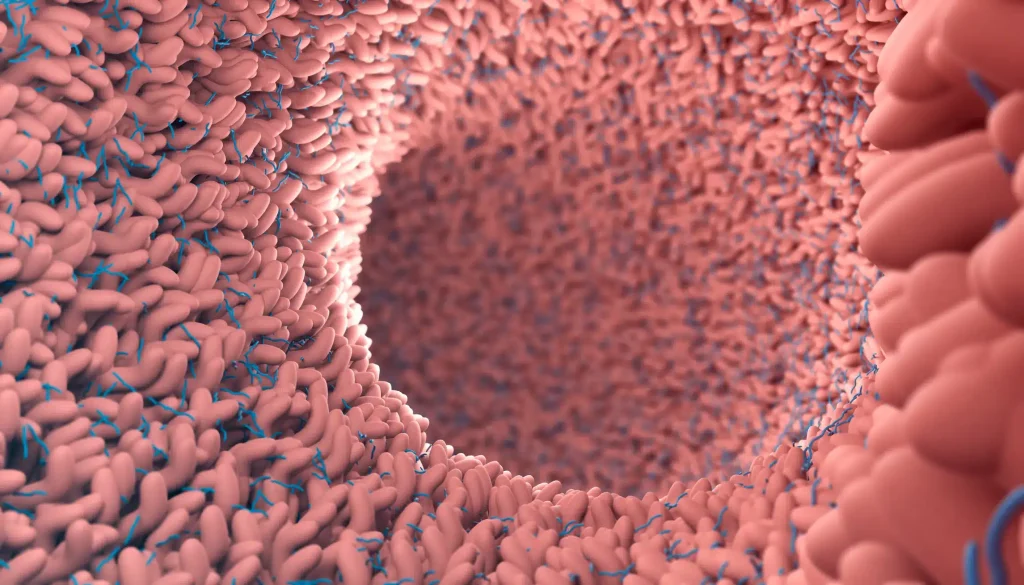Let’s explore the Diarrhea types and is often considered a minor inconvenience. However, it can indicate various underlying health issues, from infections to functional disorders. Understanding the different types of diarrhea and their causes and symptoms is not just crucial, but empowering for effective management and treatment. This article delves into the various classifications of diarrhea, including acute vs. chronic, infectious, inflammatory, and functional types, to equip you with the knowledge you need.
Acute vs. Chronic Diarrhea: Key Differences and Causes
Acute Diarrhea typically lasts for a short duration, usually less than two weeks. It is often caused by infections such as viruses, bacteria, or parasites. Common causes include:
- Viruses: Norovirus, rotavirus
- Bacteria: Salmonella, E. coli, Campylobacter
- Parasites: Giardia, Cryptosporidium
Chronic Diarrhea persists for more than four weeks and may indicate a more serious underlying condition. Causes of chronic diarrhea include:
- Irritable Bowel Syndrome (IBS)
- Inflammatory Bowel Disease (IBD): Crohn’s disease, ulcerative colitis
- Chronic infections: Clostridium difficile
- Malabsorption disorders: Celiac disease, lactose intolerance
Classifying Diarrhea: Understanding the Various Types
Diarrhea can be classified based on its underlying cause and duration. The primary classifications include:
- Infectious Diarrhea
- Inflammatory Diarrhea
- Functional Diarrhea
Each type has distinct characteristics and requires different approaches for management and treatment.
Infectious Diarrhea Types: What You Need to Know
Infectious diarrhea is caused by pathogens such as bacteria, viruses, and parasites. It can spread through contaminated food, water, or contact with infected individuals. Common types of infectious diarrhea include:
- Viral Diarrhea: Caused by viruses such as norovirus and rotavirus. Symptoms include watery stools, nausea, and vomiting. Treatment focuses on hydration and rest.
- Bacterial Diarrhea: Caused by Salmonella, E. coli, and Campylobacter bacteria. Symptoms may include bloody stools, abdominal pain, and fever. Antibiotics may be required for severe cases.
- Parasitic Diarrhea: Caused by parasites like Giardia and Cryptosporidium. Symptoms include prolonged diarrhea, bloating, and weight loss. Treatment typically involves antiparasitic medications.
Causes and Symptoms of Inflammatory Diarrhea
Inflammatory diarrhea results from conditions that cause inflammation of the intestines, such as:
- Inflammatory Bowel Disease (IBD): Includes Crohn’s disease and ulcerative colitis. Symptoms include chronic diarrhea, abdominal pain, and blood in the stool.
- Microscopic Colitis: Characterized by chronic, watery diarrhea. It is diagnosed through a biopsy of the colon.
Symptoms of Inflammatory Diarrhea:
- Persistent diarrhea
- Abdominal pain and cramping
- Blood or mucus in the stool
- Urgency to have a bowel movement
- Weight loss and fatigue
Treatment for inflammatory diarrhea involves managing the underlying condition through medication, dietary changes, and sometimes surgery.
Functional Diarrhea Types: Identifying and Managing Symptoms
Functional diarrhea is often related to disorders in the bowel function without an identifiable cause. The most common types include:
- Irritable Bowel Syndrome (IBS): A disorder characterized by abdominal pain, bloating, and altered bowel habits, including diarrhea (IBS-D). The exact cause is unknown, but it is believed to involve gut-brain interactions, motility issues, and sensitivity to certain foods.
Symptoms of Functional Diarrhea:
- Recurrent diarrhea, especially after meals
- Abdominal discomfort or pain
- Bloating and gas
- A feeling of incomplete bowel evacuation
Diagnosis of functional diarrhea is often based on symptom history and exclusion of other causes. Management includes dietary modifications, stress reduction, and medications to control symptoms.
What are the Classifications of Diarrhea and Their Causes?
Diarrhea can be classified into several types based on its cause:
- Osmotic Diarrhea: Occurs when non-absorbable substances draw water into the intestines. Common causes include lactose intolerance and consumption of certain artificial sweeteners.
- Secretory Diarrhea: Results from the intestine secreting excessive fluids. Causes include bacterial toxins (e.g., cholera), certain medications, and hormonal imbalances.
- Exudative Diarrhea: This type is caused by blood and pus in the stool due to intestinal inflammation or infection. Conditions like IBD and severe infections can lead to it.
- Motility-Related Diarrhea: Arises from altered intestinal motility, as seen in IBS and diabetic neuropathy.
Key Takeaways:
- Acute diarrhea is short-term and often caused by infections.
- Chronic diarrhea lasts longer and may indicate underlying conditions like IBD or malabsorption disorders.
- Infectious diarrhea is due to pathogens and can be viral, bacterial, or parasitic.
- Inflammatory diarrhea involves intestinal inflammation, commonly caused by IBD.
- Functional diarrhea is related to bowel function disorders like IBS.
Understanding the type of diarrhea is crucial for effective treatment and management. If you experience persistent or severe diarrhea, remember that you are not alone. Consult a healthcare provider for accurate diagnosis and appropriate treatment. Your health and well-being are our top priority.







